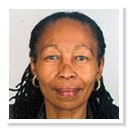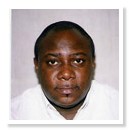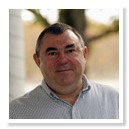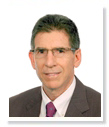|
Andrew Bennett, Board Chair

Dr Andrew Bennett is the President of the Tropical Agricultural Association (UK) and chairs the Board of Trustees for the Science and Development Network (SciDev.Net). Dr Bennett is a Non-Executive Director of the Syngenta Foundation for Sustainable Agriculture, CABI International (formerly known as the Commonwealth Agricultural Bureau) and the International Baccalaureate Organisation, UK. Dr Bennett is a member of the board for the International Bamboo and Rattan Network (INBAR), the European Centre of Underutilised Crops (ECUC) and the Doyle Foundation (UK).
He was formerly Executive Director of the Syngenta Foundation and Director of Rural Livelihoods and Environment at the Department for International Development (DFID, UK) where he was responsible for professional advice on policy and programmes on livelihoods, natural resources, environment, sustainable development and research. He also formerly chaired the Board of Trustees for the Centre for International Forestry Research (CIFOR). Dr Bennett has more than 45 years of experience in international development and disaster management, having worked in development programmes in Africa, Asia, Latin America, the Pacific and the Caribbean. He has extensive experience of international negotiations on natural resources, research, environment and development.
More specifically, Dr Bennett’s areas of expertise include agronomy, tropical agriculture, forestry, research, environmental management, international development, negotiation and governance.
Interviews with our Board Chair: Blogpost | Video
|
|
Andreas Graner, Board member

Since 2007, Prof Andreas Graner has been Acting Director of the Leibniz Institute of Plant Genetics and Crop Plant Research (IPK), Germany. He also heads IPK’s Genebank Department and is a professor of Plant Genetic Resources, University of Halle (Germany), serving in both capacities since 1999, and he is a member of the German Academy of Natural Sciences, Leopoldina.
Prior to joining IPK, Prof Graner was a Research Scientist at the Institute for Resistance Genetics, Gruenbach (1990–1997), after which he came to IPK as a Senior Scientist and coordinator of the Plant Genome Resource Centre, IPK Gatersleben (1997–1999).
Among others, Prof Graner serves on the editorial boards of Molecular Breeding and Theoretical and Applied Genetics; the Steering Board of the German Society of Plant Breeding (GPZ); the Scientific Advisory Board of the Max-Planck-Institute for Breeding Research (MPIZ), Cologne; the Scientific Advisory Board of the Julius Kueh Institute and the Steering Committee of the International Barley Sequencing Consortium.
His areas of expertise include cereal genetics, genomics, molecular breeding and plant genetic resources. He is particularly interested in the development of genome-based strategies for better utilisation of plant genetic resources.
|
|
Calvin Qualset, Board member

Prof Qualset is Professor Emeritus at the University of California–Davis, USA where he has served since 1967 as Professor, Department Chair, Associate Dean, and Director of several programmes, including the Genetic Resources Conservation Program.
Recent activities include Principal Investigator of a 13-lab wheat genomics project sponsored by the US National Science Foundation Plant Genome (1999–2004); Co-Director, McKnight Foundation Collaborative Crop Research Project (1995–2002) in USA and Mexico; co-PI of NSF-sponsored project on wheat landrace diversity in Turkey, and Coordinator, International Triticeae Mapping Initiative (1989–2000); and was Vice-Chair of the IRRI Board of Trustees (1999–2004).
He is past President of the American Society of Agronomy and the Crop Science Society of America. He has conducted reviews for several CGIAR centers and various agencies in Africa, Asia, America, and Europe. Prof Qualset has presented invited seminars and lectures in several countries and co-organised international meetings.
Prof Qualset’s areas of specialisation include plant genetics and breeding research, variety development, and genetic resources research on traits, distributions, and landraces of cereal crops.
|
|
Esther Murugi Kahangi, Board member

Esther Murugi Kahangi is a Professor at the Department of Horticulture, Jomo Kenyatta University of Agriculture and Technology (JKUAT), Kenya, where she has been since 1982. She is also the Deputy Vice Chancellor in charge of Research, Production and Extension (JKUAT), and a member of the Board of Directors, Kenya Agricultural Research Institute (KARI).
She has previously served as the Coordinator East African Regional Programme and Research Network for Biotechnology, Biosafety and Biotechnology Policy Development (BIO-EARN) and at JKUAT as the Director, Institute for Biotechnology Research; Dean, Faculty of Agriculture; and Head, Department of Horticulture—a department she initiated. In 2002, she was warded the UNESCO Chair in Biotechnology for her outstanding work.
Prior to coming to JKUAT, Prof Kahangi was a Research Officer at the Kenyan Ministry of Agriculture’s National Horticulture Research Station, before rising to Head of Vegetable Seed Production Section, in charge of research in vegetable seed production nationwide.
Prof Kahangi has also consulted for various government, non-government and international funding agencies on impact assessment—including environmental impact assessments—project appraisals, and feasibility studies.
Her areas of expertise are plant physiology, tissue culture, genetic characterisation of crop plants and technology dissemination to end users.
|
|
Harold Roy-Macauley, Board member

Dr Harold Roy-Macauley is the Executive Director of le Conseil Ouest et Centre africain pour la recherche et le développement agricoles (CORAF/WECARD) in Dakar, Senegal, where he also served as Director of Programmes from 2009 to 2011.
Before CORAF/WECARD, Dr Roy-Macauley worked for the World Agroforestry Centre (ICRAF), initially undertaking the role as Regional Coordinator, West and Central Africa, in April 2006, after which he relocated to Guinea in January 2009 to take up the position of ICRAF Representative in the Upper Guinea Node for West Africa, overseeing research and development activities, notably in Guinea, Sierra Leone, Liberia and Côte d’Ivoire.
|
|
Jeffrey B McElroy, Board member

Dr Jeffrey B McElroy is the Vice-President—Research and Development for Backyard Farms LLC, in Madison, Maine, USA, where he heads up the research and development efforts for the company and conducts research focused on factors that impact flavor characteristics in fresh produce.
Before joining Backyard Farms, Dr McElroy was Vice-President, BioEnergy Seeds for Mendel Biotechnology, Inc, in Hayward, California, USA, where he led the strategic planning and project implementation for the BioEnergy Seeds programme (2008-2010), Vice-President, Research at Harris Moran Seed Company (USA), where he managed plant breeding programme- and research for many vegetables (1999-2008). Dr McElroy was the Head, Vegetable Breeding at L Dæhnfeldt A/S, Denmark (1994–1997), before rising to Divisional Manager Vegetable Seeds (1997–1998). Between 1986 and 1994, he was a Plant Breeder at Petoseed Co Inc (USA). As a postdoctoral Research Associate at the University of Nebraska, Dr McElroy conducted basic collaborative research on genetic resistance to common bacterial blight and rust of dry beans which included fieldwork in the Dominican Republic and Puerto Rico. Prior to that, he was also a Visiting Research Associate, Bean Programme, at CIAT, Cali, Colombia.
Dr McElroy has travelled extensively throughout Europe, Asia and South America.
His areas of expertise include economic botany, plant breeding and research management.
|
|
Markus Palenberg, Board member
 Dr Markus Palenberg is Managing Director of the Institute for Development Strategy (IfDS), a small independent research institute located in Munich, Germany. Dr Markus Palenberg is Managing Director of the Institute for Development Strategy (IfDS), a small independent research institute located in Munich, Germany.
Dr Palenberg is a researcher, evaluator and advisor. His research focuses on evaluation methodology, currently on tools for assessing the efficiency of development interventions. As evaluator, he has specialised on theory-based evaluations of complex interventions such as global programmes and public-private development partnerships. He also advises programmes and networks on impact strategies, internal governance arrangements and M&E systems.
Over the last decade, Dr Palenberg has led and conducted more than 30 research and consulting assignments in the public and private sector, including 8 global and regional programme reviews in the last 5 years. Since 2010, he is member of the Programme Management Team of HarvestPlus.
Before founding IfDS in 2008, Dr Palenberg managed the consulting practice at the independent think-tank Global Public Policy Institute (GPPi), Berlin, and has worked in corporate management and as team leader at global management consulting firm, McKinsey&Company, Inc. for several years.
Dr Palenberg holds a PhD in Theoretical Physics and was postdoctoral Humboldt fellow at the Massachusetts Institute of Technology (MIT), USA.
|
|
Michael Morris, Board member
 Dr Michael Morris is a Programme Coordinator in the Agriculture and Rural Development Unit (AFTAR) of the World Bank. He is a member of the team that manages the work of about 100 professionals working on agriculture and rural development throughout Sub-Saharan Africa. In addition to his management responsibilities, he conducts applied research and is actively involved in lending operations. He is the lead author of recent World Bank flagship publications on fertiliser policy and agricultural commercialisation, as well as a contributor to the 2008 World Development Report Agriculture for Development. Dr Michael Morris is a Programme Coordinator in the Agriculture and Rural Development Unit (AFTAR) of the World Bank. He is a member of the team that manages the work of about 100 professionals working on agriculture and rural development throughout Sub-Saharan Africa. In addition to his management responsibilities, he conducts applied research and is actively involved in lending operations. He is the lead author of recent World Bank flagship publications on fertiliser policy and agricultural commercialisation, as well as a contributor to the 2008 World Development Report Agriculture for Development.
Before joining the World Bank in 2004, he served for three years as a Peace Corps Volunteer in Sierra Leone; conducted dissertation field research for two years in Senegal; worked for 16 years in Mexico and Thailand as a scientist and programme director with the International Maize and Wheat Improvement Center (CIMMYT); and spent one year in Washington, DC, as a Visiting Research Fellow at the International Food Policy Research Institute (IFPRI). Since joining the World Bank, he has served out long term assignments in Washington DC, USA and Antananarivo, Madagascar. During the course of his career, he has been privileged to work in more than 40 developing countries.
His areas of expertise include agricultural strategy and policy formulation, farm-level productivity enhancement, marketing systems and value chain development, agricultural research and technology transfer, institutional strengthening, and capacity building.
|











 Dr Markus Palenberg is Managing Director of the Institute for Development Strategy (IfDS), a small independent research institute located in Munich, Germany.
Dr Markus Palenberg is Managing Director of the Institute for Development Strategy (IfDS), a small independent research institute located in Munich, Germany. Dr Michael Morris is a Programme Coordinator in the Agriculture and Rural Development Unit (AFTAR) of the World Bank. He is a member of the team that manages the work of about 100 professionals working on agriculture and rural development throughout Sub-Saharan Africa. In addition to his management responsibilities, he conducts applied research and is actively involved in lending operations. He is the lead author of recent World Bank flagship publications on fertiliser policy and agricultural commercialisation, as well as a contributor to the 2008 World Development Report Agriculture for Development.
Dr Michael Morris is a Programme Coordinator in the Agriculture and Rural Development Unit (AFTAR) of the World Bank. He is a member of the team that manages the work of about 100 professionals working on agriculture and rural development throughout Sub-Saharan Africa. In addition to his management responsibilities, he conducts applied research and is actively involved in lending operations. He is the lead author of recent World Bank flagship publications on fertiliser policy and agricultural commercialisation, as well as a contributor to the 2008 World Development Report Agriculture for Development.
